Guatemalan caretakers of home and nature
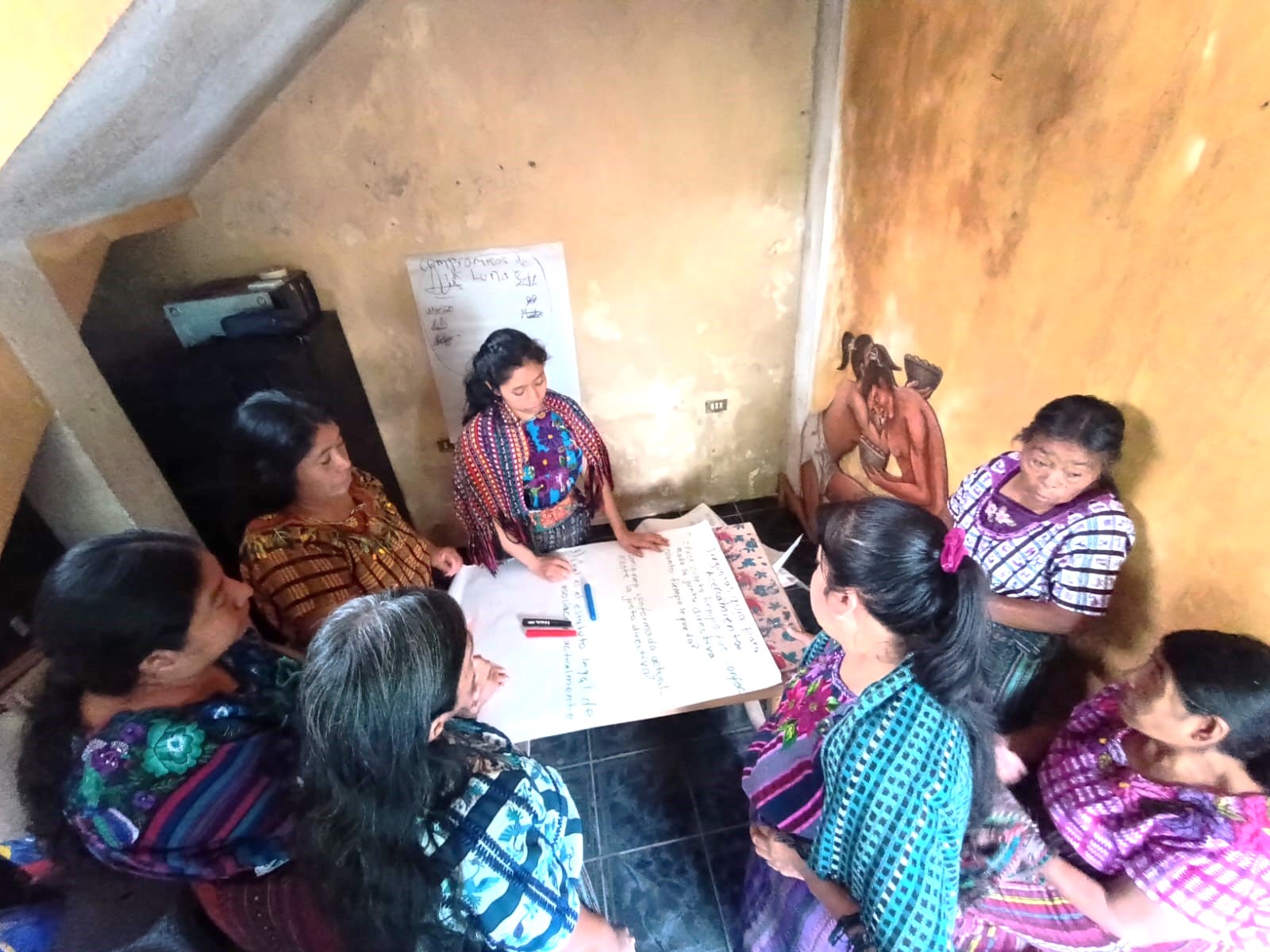
Diagnostic workshop of the Ik Luna Association. Credit - Elmer Puac, TNC.
Supporting Mayan women, caretakers of home and nature in the Guatemalan highlands
The Zunil - Atitlán - Balam Juyu' (ZABJ) biocultural and sustainable development corridor in the Guatemalan highlands is a continuous strip of forest, important for the ecosystem services they provide to the population and for their biodiversity. It is also the ancestral home of several Mayan communities (Tz'utujil, Kaqchikel, and K'iche') highly affected by poverty and food insecurity and who base their livelihoods on the goods and services provided by the forest. The corridor is located mostly in the department of Sololá, where 96% of the population self-identifies as Mayan and 52% of the population is female. In the municipalities of Zunil in Quetzaltenango and Patzún in Chimaltenango, the Mayan population exceeds 83% and 51-55% are women.
 Delivery of native forest plants for restoration. Credit - Estuardo Torres, TNC.
Delivery of native forest plants for restoration. Credit - Estuardo Torres, TNC.
The Nature Conservancy (TNC) Guatemala seeks to improve integrated landscape management to reduce poverty and social inequality in rural Indigenous communities of the ZABJ corridor through a project for the conservation and sustainable use of biodiversity. This project contributes to halting the loss of megadiversity in the montane, pine-oak, and broadleaf forests of the corridor caused by forest fires, inappropriate agricultural practices, and illegal logging. From the design stage, the project addresses the basic needs, access to resources and capacities of marginalised groups and women in the region, and proposed transformative changes.
Gender equity and women's empowerment is essential in the fight against poverty and climate change. Within the natural and cultural diversity of Guatemala, rural women are mostly engaged in agricultural and household work, providing a valuable contribution, achieved in precarious conditions, without remuneration and little recognition. Rural women are guardians of nature, caring for the land, water and biodiversity. Their participation is important for the sustainability of their communities and access to resources that allow them to prosper, as well as the need to promote leadership and empowerment in management and decision-making spaces so that they can be agents of change in their communities.
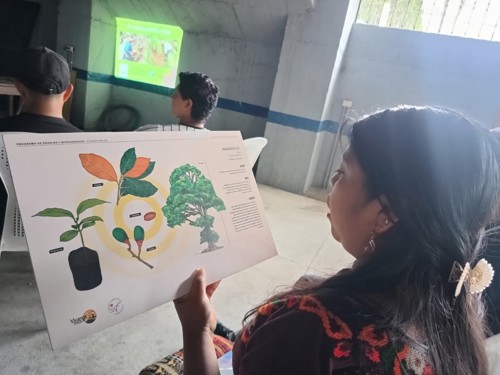
In this context, the project has carried out activities to strengthen governance and sustainable management. It searches to increase the participation of women and marginalised groups in decision-making. It supported the Regional Roundtable of Conservation Areas formation as a territorial platform for the sustainable management of the conservation corridor. This is made up of the legal representatives of the conservation areas previously assigned, the majority of whom are men, with only 12.5% of women. However, it was decided that everyone would be invited to participate. Thus, 13-17% of Indigenous women and 8-21% of Indigenous youth have participated in the meetings for the formation of the Roundtable.
Regarding activities that promote income enhancement through forest goods, the project supports the sustainable production of coffee and honey, giving women equity of access to resources and skills. Women have represented 38% of the people who received inputs for sustainable coffee production (coffee plants) and 19% of the people who received inputs for honey production (beehives, inputs, and tools). More than 90% of the total belong to marginalised groups (Mayan peoples).
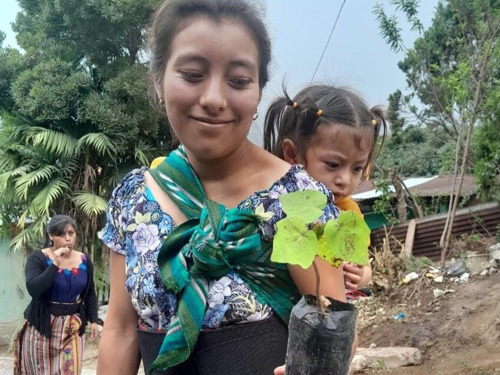
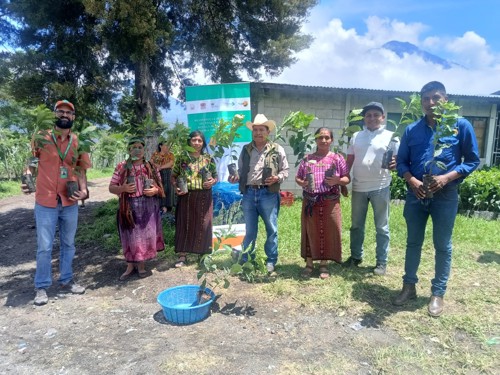
Although most of the beneficiaries are men who lead the family's productive activities, women participate in other stages of the production cycle, such as harvesting, packaging, and sales. Therefore, the project asked the beneficiaries to invite women to participate in the training activities. Thus, the participation of women in the training workshops on sustainable coffee and honey production amounts to 43%. Access to resources and skills is expected to result in an increase in sustainable coffee and honey production capacity, and therefore an increase in their economic income.
The project has developed an improved fuelwood-saving stove programme in key areas for the conservation and connectivity of the corridor and it is aimed primarily at women, who represent 89% of the beneficiaries. The improved fuelwood-saving stove is expected to provide a 50% saving in the amount of fuelwood needed to cook food, reducing the family’s time spent collecting fuelwood. This also reduces the degradation of the main forests in the region, and improves the health of the families.
The participation and empowerment of women in natural resource governance structures, and the strengthening of their individual and organisational capacities in conservation practices, are opportunities to create sustainable territories that allow them to improve their livelihoods.
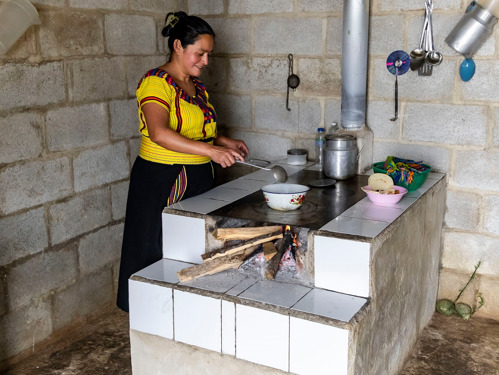
Written by Catalina Godoy. For more information on this Darwin Initiative Main project 30-006, led by TNC, please click here.
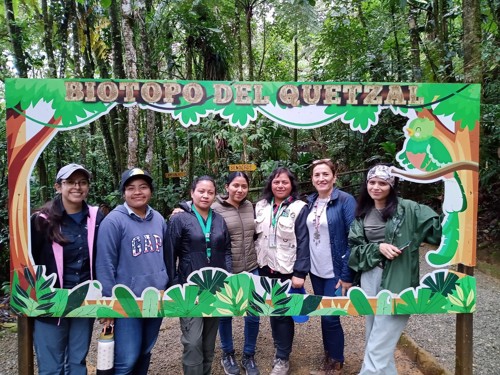

 Back
Back